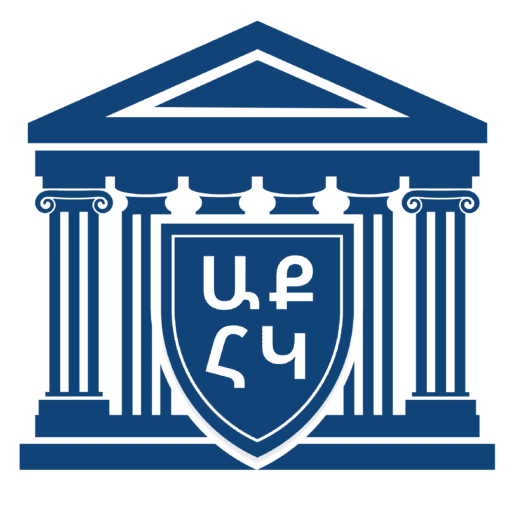General Overview of the Party System
Over the past 10 years, as a result of legal and institutional changes, the role of political parties in Armenia’s political system has significantly increased. The transition to a parliamentary system of governance, including the absence of direct presidential elections, the shift to a fully proportional electoral system in parliamentary elections, and the transition to proportional representation in the vast majority of local government elections have gradually led to parties becoming the main subjects in the political system. Thus, in all elections taking place in Armenia, except for communities with fewer than 4,000 voters, the participants are political parties and alliances formed by them. While the role and status of parties have increased, Armenia’s party system continues to face significant issues and remains relatively underdeveloped.
According to the Constitutional Law on Political Parties of the Republic of Armenia, a political party is a voluntary association of Armenian citizens whose purpose is to participate in referendums, state and local government elections, and to contribute to the formation and expression of the people’s political will through other forms of participation in the political life of society and state. In Armenia, registration of a political party requires at least 300 citizen-founders. Along with the increasing role of parties, this registration requirement was tightened in 2021; previously, registration required at least 100 founders. This change, among other things, was intended to make it more difficult for new parties to enter the political system and to improve their quality by reducing their quantity.
Currently, 119 political parties are operating in Armenia. Of these, 35 were registered during 2021-2024. This large influx of parties into the political system is fundamentally a result of the ongoing political crisis since 2020 and the 2021 snap parliamentary elections, as well as the transition to proportional electoral systems in local communities. We can observe that the raised threshold for party registration has only partially served its purpose. Overall, since Armenia’s independence, 154 parties have been registered, of which 35 have been dissolved during this period.
Private Financing and Obstacles
Ideological foundation and financial capabilities are crucial for the sustainable operation and development of political parties. Moreover, it is desirable that this ideological foundation forms and attracts financial capabilities. The vast majority of active parties are passive in the political system – on average, up to 20 parties participate in parliamentary and local elections. In the period leading up to elections, even fewer parties engage in any political activity. We notice that only about 10% of the 119 active parties serve the purpose defined by law – contributing to the formation and expression of the people’s political will. This is evidenced by political apathy, low voter turnout, and according to social surveys, low trust in political entities and institutions.
The reasons for this chronic passivity and inaction are, on one hand, the weak ideological foundations of parties, which prevent them from engaging the public and mobilizing supporters, and on the other hand, the resulting lack of financial capabilities, which prevents parties from conducting any activities.
In Armenia, party finances can be formed from private and public/state sources. It should be emphasized that public funding of parties is secondary, available to few parties, and aimed at promoting the viability and independence of parties that have certain public support and no other significant sources of income.
Regarding private financing, it mainly comes from party membership (one-time) and membership (periodic) fees, donations from members and supporters, party-established media outlets and publishing houses, loans, borrowings, and deposits. Notably, the last five sources mentioned are rarely encountered in practice. Armenian legislation applies restrictions on private financing.
Thus, in Armenia, a citizen’s annual donations and membership fees to one or more parties cannot exceed 2.5 million drams. Whereas a party can annually receive a maximum of 500 million drams from these fees. These restrictions aim to create certain equal playing conditions between parties and limit financial imbalance. Another important restriction is the prohibition of anonymous donations and donations from legal entities to parties. The ban on legal entities was introduced relatively recently, aimed at reducing the influence of business and private interests in public life.
Theoretically and practically[i] [ii], these restrictions can be circumvented. To bypass maximum monetary limits, donations are made using other individuals’ data. The same mechanism is used by real beneficiaries of businesses, with donations made through employees or other related persons. Regarding the ban on anonymous donations, some CSOs and international experts note that anonymity should be allowed for small donations[iii]. This would allow private individuals to feel more secure and protected when making donations based on their political views. However, in practice, it’s very difficult to assess how relevant this concern is.
It’s important to note that possible and actual circumvention of current regulations results not so much from deficiencies in existing regulations as from limited legal oversight. These cases allow some stakeholders to raise claims about eliminating existing mechanisms and liberalizing the field from regulations. The existing mechanisms are aimed at ensuring transparency and accountability of party operations. Meanwhile, in their absence or liberalization, one can argue that party transparency and accountability would likely suffer. In this sense, to improve existing mechanisms, public authorities and CSOs need to strengthen public oversight.
Currently, the Commission on Prevention of Corruption (CPC) oversees parties’ annual financial activities. The CPC has repeatedly stated in public[iv] and professional discussions that the body’s current capabilities are insufficient for comprehensive and high-quality oversight.
Parties submit reports on their annual financial activities to the CPC. From a simple observation of these reports over the last two years, it can be noted that 20-30% of parties didn’t submit reports at all. The CPC notes that it’s very difficult to establish contact with some parties. Two-thirds of the parties that submitted reports in the last two years didn’t conduct any financial activity at all. If we consider the total number of parties, it appears the number of parties conducting at least minimal financial activity (funds involvement and expenses) is about 20-30%.
Summary
In the context of political parties’ key role in Armenia’s political system, these indicators demonstrate the dysfunction of the party system. A significant portion of parties conduct no activity at all and thus do not serve their purpose, which increases the administrative costs of oversight over them.
Taking into account the above mentioned, all stakeholders must make significant efforts to improve the current situation. Based on existing constitutional principles, stricter conditions for conducting party activities should be established for parties, and accordingly, more expanded grounds for termination of activities should be defined. In this sense, along with public authorities, the role of CSOs is important in conducting discussions and supporting policy development. The quantitative and qualitative development of public oversight mechanisms and capacity improvement are also important, both for public authorities and CSOs.
[i] https://infocom.am/hy/article/123299
[ii] https://tinyurl.com/9cf47ey9
[iii] https://www.venice.coe.int/webforms/documents/?pdf=CDL-AD(2023)030-e
[iv] https://www.youtube.com/watch?v=lzgS-XV8G54&t=1090s
Author: RCSP associate expert Tigran Mughnetsyan
Photo from EVN Report website

